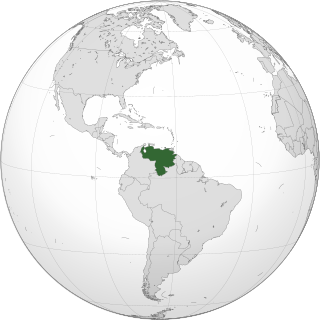Related Research Articles
The legal status of transgender people varies greatly around the world. Some countries have enacted laws protecting the rights of transgender individuals, but others have criminalized their gender identity or expression. In many cases, transgender individuals face discrimination in employment, housing, healthcare, and other areas of life.

Sexism is prejudice or discrimination based on one's sex or gender. Sexism can affect anyone, but primarily affects women and girls. It has been linked to gender roles and stereotypes, and may include the belief that one sex or gender is intrinsically superior to another. Extreme sexism may foster sexual harassment, rape, and other forms of sexual violence. Discrimination in this context is defined as discrimination toward people based on their gender identity or their gender or sex differences. An example of this is workplace inequality. Sexism may arise from social or cultural customs and norms.

Transfeminism, or trans feminism, is a branch of feminism focused on transgender women and informed by transgender studies. Transfeminism focuses on the effects of transmisogyny and patriarchy on trans women. It is related to the broader field of queer theory. The term was popularized by Emi Koyama in The Transfeminist Manifesto.

Lesbian, gay, bisexual, and transgender (LGBT) people in Venezuela face legal challenges not experienced by non-LGBT residents. Both male and female types of same-sex sexual activity are legal in Venezuela, but same-sex couples and households headed by same-sex couples are not eligible for the same legal protections available to opposite-sex married couples. Also, same-sex marriage and de facto unions are constitutionally banned since 1999.

Rosemary Barkett is a Mexican-American judge of the Iran–United States Claims Tribunal located in The Hague, Netherlands since 2013. Previously, she served as a United States circuit judge of the United States Court of Appeals for the Eleventh Circuit. Prior to her nomination for that post, she was chief justice of the Florida Supreme Court.

Bliss v Canada (AG) [1979] 1 S.C.R. 183 is a famous Supreme Court of Canada decision on equality rights for women under the Canadian Bill of Rights. The Court held that women were not entitled to benefits denied to them by the Unemployment Insurance Act during a certain period of pregnancy. This case has since become the prime example demonstrating the inadequacies of the Canadian Bill of Rights in upholding and protecting individuals' rights. This ruling was eventually overturned in Brooks v. Canada Safeway Ltd., [1989] 1 SCR 1219.
Stopps v Just Ladies Fitness (Metrotown) Ltd was a discrimination by sex case heard before the British Columbia Human Rights Tribunal that was significant in Canadian law because it found that a women-only admission policy of a public gym was not discrimination.
The timeline of women's legal rights (other than voting) represents formal changes and reforms regarding women's rights. The changes include actual law reforms, as well as other formal changes (e.g. reforms through new interpretations of laws by precedents). The right to vote is exempted from the timeline: for that right, see Timeline of women's suffrage. The timeline excludes ideological changes and events within feminism and antifeminism; for that, see Timeline of feminism.
The British Columbia Human Rights Tribunal is a quasi-judicial human rights body in British Columbia, Canada. It was established under British Columbia's Human Rights Code. It is responsible for "accepting, screening, mediating and adjudicating human rights complaints."

Human rights in Canada have come under increasing public attention and legal protection since World War II. Prior to that time, there were few legal protections for human rights. The protections which did exist focused on specific issues, rather than taking a general approach to human rights.

Lesbian, gay, bisexual, transgender and queer (LGBTQ) people face difficulties in prison such as increased vulnerability to sexual assault, other kinds of violence, and trouble accessing necessary medical care. While much of the available data on LGBTQ inmates comes from the United States, Amnesty International maintains records of known incidents internationally in which LGBTQ prisoners and those perceived to be lesbian, gay, bisexual or transgender have suffered torture, ill-treatment and violence at the hands of fellow inmates as well as prison officials.
Price Waterhouse v. Hopkins, 490 U.S. 228 (1989), was a landmark decision of the US Supreme Court on the issues of prescriptive sex discrimination and employer liability for sex discrimination. The employee, Ann Hopkins, sued her former employer, the accounting firm Price Waterhouse. She argued that the firm denied her partnership because she did not fit the partners' idea of what a female employee should look and act like. The employer failed to prove that it would have denied her partnership anyway, and the Court held that constituted sex discrimination under Title VII of the Civil Rights Act of 1964.

Lesbian, gay, bisexual, and transgender (LGBT) persons in the U.S. state of Oklahoma face legal challenges not experienced by non-LGBT residents. Same-sex sexual activity is legal in Oklahoma as a result of the U.S. Supreme Court decision in Lawrence v. Texas, although the state legislature has not repealed its sodomy laws. Both same-sex marriage and adoption by same-sex couples have been permitted since October 2014. State statutes do not prohibit discrimination based on sexual orientation or gender identity; however, the U.S. Supreme Court's ruling in Bostock v. Clayton County established that employment discrimination against LGBT people is illegal. This practice may still continue, as Oklahoma is an at-will employment state and it is still legal to fire an employee without requiring the employer to disclose any reason.
Feminist views on transgender topics vary widely.
Vancouver Rape Relief & Women's Shelter is Canada's longest running rape crisis center. The shelter, located in Vancouver, British Columbia, was established in 1973 and has operated a feminist transition house since 1983, offering women shelter from men who are abusing them, including fathers, husbands, sons, pimps, johns and landlords. A member of the Canadian Association of Sexual Assault Centres (CASAC), it is an independent, non-governmental group with no connection to the criminal justice system.

The Justice Centre for Constitutional Freedoms (JCCF) is a Canadian legal advocacy organization specializing in a social conservative approach to the Canadian Charter of Rights and Freedoms. The libertarian organisation has partnered with several right-wing backers in the United States.
This article addresses the legal and regulatory history of transgender and transsexual people in the United States including case law and governmental regulatory action affecting their legal status and privileges, at the federal, state, municipal, and local level, and including military justice as well.
R.G. & G.R. Harris Funeral Homes Inc. v. Equal Employment Opportunity Commission, 590 U.S. ___ (2020), is a landmark United States Supreme Court case which ruled that Title VII of the Civil Rights Act of 1964 protects transgender people from employment discrimination.
Jessica Simpson, commonly known by her former legal name, Jessica Yaniv, is a Canadian transgender activist in British Columbia who is best known for filing at least 15 complaints of discrimination on the basis of gender identity against various beauty salons after they refused to wax her male genitalia. The complaints were filed with the British Columbia Human Rights Tribunal in 2018 and 2019. It was the first major case of alleged transgender discrimination in retail in Canada. In 2019, the Tribunal rejected her complaints and ruled Yaniv had racist motives. In following years, Yaniv has gone on to make additional complaints of discrimination, libel and privacy breach.
Forstater v Centre for Global Development Europe is a UK employment and discrimination case brought by Maya Forstater against the Center for Global Development (CGD). The Employment Appeal Tribunal decided that gender-critical views are capable of being protected as a belief under the Equality Act 2010. The tribunal further clarified that this finding does not mean that people with gender-critical beliefs can express them in a manner that discriminates against trans people.
References
- 1 2 3 4 Chambers, Lori. "Unprincipled Exclusions: Feminist Theory, Transgender Jurisprudence, and Kimberly Nixon." Canadian Journal of Women and the Law 19.2 (2007): 305–34. Web.
- 1 2 3 4 5 "Chronology of Events in Kimberly Nixon vs Vancouver Rape Relief Society". Vancouver Rape Relief & Women’s Shelter. rapereliefshelter.bc.ca, June 1, 2009. Web. June 11, 2016.
- ↑ Vancouver Rape Relief Society v. Nixon, p. 601, retrieved January 17, 2020.
- 1 2 Kimberly Nixon (complainant) and Vancouver Rape Relief Society (respondent) and BC Human Rights Commission. June 2, 2000. (Folder 1). Raw data. University of Victoria, Victoria. Retrieved June 8, 2016.
- ↑ Rupp, Shannon (February 3, 2007). "Transsexual Loses Fight with Women's Shelter". The Tyee. Retrieved July 25, 2019.
- ↑ Roberts, Carol. "Re: Complaint – What Went Down". June 30, 2000. (Folder 1). Raw data. University of Victoria, Victoria. Retrieved June 8, 2016.
- 1 2 3 "Vancouver Rape Relief Society v. Nixon 2005 BCCA 601 Summary of Decision". Vancouver Rape Relief & Women's Shelter. Retrieved July 25, 2019.
- ↑ Vancouver Rape Society v. Nixon. Supreme Court of British Columbia. 1999–2000. (Folder 1). Raw data. University of Victoria, Victoria. Retrieved June 8, 2016.
- ↑ "Human Rights Code". Bclaws.ca. Retrieved June 18, 2016.